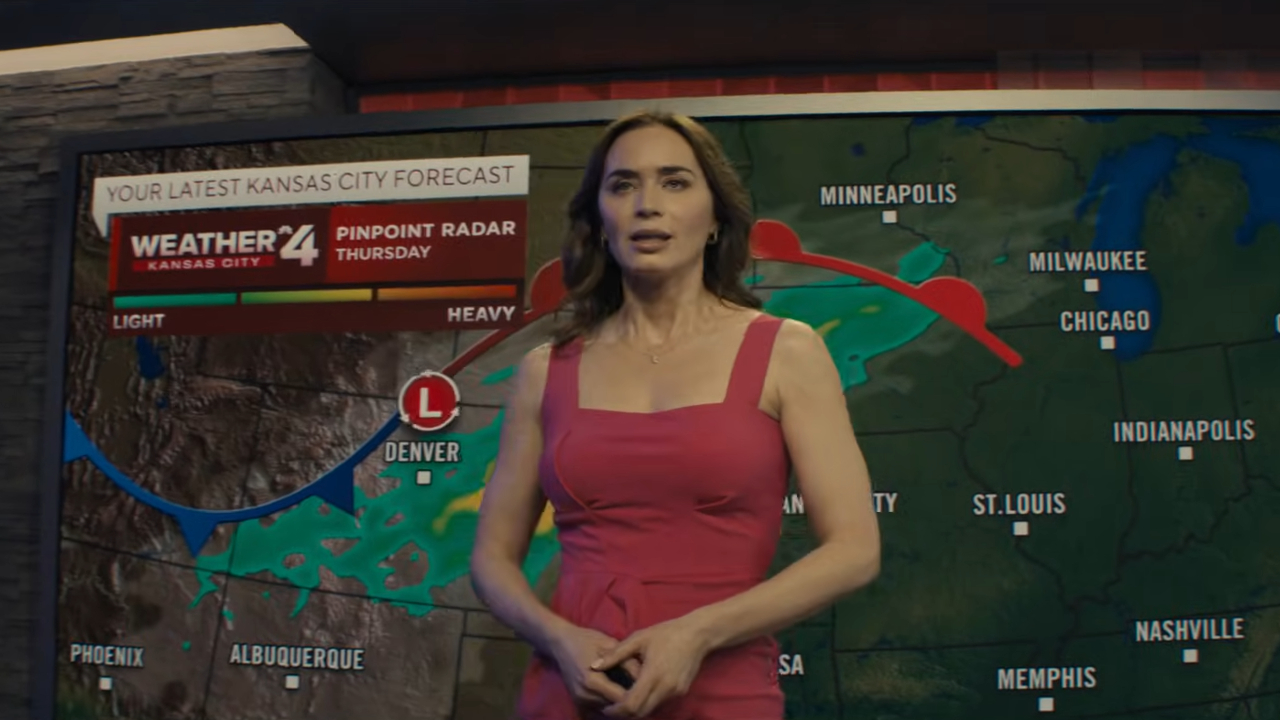SXSW: Crawford Review

Your Daily Blend of Entertainment News
You are now subscribed
Your newsletter sign-up was successful
Documentary filmmaker David Modigliani has, unlike the hundreds of other filmmakers making movies on exactly the same subject, tackled the suckiness of Bush’s failed presidency from a fresh, unique perspective. Modigliani took his cameras to George’s new hometown of Crawford, population 705, and uses them to shoot a documentary about what happened to the tiny Texas farm town when Bush, suddenly, and inexplicably, movies in. What’s great about the film is that he doesn’t approach it from the liberal perspective so many other filmmakers in his genre have. He simply shows up to see what’s going on, and then interviews his subjects over the years to see how their world changes with Bush’s incursion.
For those of you who may have had the wrong impression, President Bush is in fact, not a Crawford native. He moved there during his run for president in 2000, descending on the town out of nowhere, and if you ask Crawford’s residents they’ll likely tell you the expect him to move out about the same time he leaves the White House. But this isn’t a movie about Bush and the way he manipulated the media into portraying him as a humble Texas farmer when he’s actually the favored son of one of the richest families in Connecticut. Instead of getting bogged down in the actual politics of Bush’s presidency, Modigliani focuses on how those politics and the mere presence of a national celebrity slowly change the town over the eight years of Bush’s residency.
At first it seems like a good thing, and the town is united in excitement over his arrival. And for a year or two, it is a good thing. The town’s long dead main street is suddenly revitalized, as Bush souvenir shops open catering to all the new tourist faces drifting into town. Then the protestors come, and suddenly the town’s residents can no longer get through the streets, and they start to resent what’s going on. A lot of the changes are less measurable than traffic patterns though. Crawford’s sleepy residents now find in themselves a renewed interest in politics, and the town’s residents start to take sides, with most of them lining up behind Bush and ostracizing the town’s small minority who aren’t with them.
That’s one of the strange idiosyncrasies of Crawford and its people. Many of them seem to resent Bush for the changes he’s caused in the town, yet at the same time those same people overwhelmingly support him. Crawford is Bush-central, even though most of the town seems to wish he’d pick up and move somewhere else. Crawford, like any town just isn’t that simple, and though they might not like him as a neighbor its people are almost fanatically devoted to W as their commander in chief.
To me though, the real story here isn’t the broader tale of how the town is changed by Bush, but the smaller story inside it of a quiet, dedicated High School teacher named Misti Turbeville who tries desperately to make a difference. She makes it her job to teach her students not how to think, but simply to think. She’s the kind of amazing teacher everyone needs to have at least once in their life, a lifeline to kids who are stuck at Bush ground zero. She’s a hero, not because she tries to present the opposing view, but because she simply tries to get her students to think of themselves. Misti fights to get her kids to use their brains, even when a lot of the time it seems like the place she lives in is filled with people who would rather they not.
The great thing about Crawford is how complex it is. None of the people interviewed and profiled in the film are two-dimensional and Modigliani lets them simply be themselves. As someone who grew up in small-town Texas, it’s nice to see something out there that really captures all the sides of small-town living. Crawford isn’t a perfect documentary, but it’s immensely even-handed, entertaining, and because of the heroic determination of soft-spoken Misti Turbeville, incredibly affecting.
Your Daily Blend of Entertainment News

